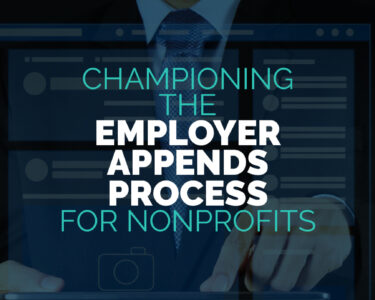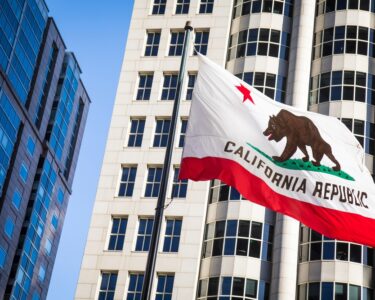501(c)(3)s can play a significant role in shaping public policy around issues related to their exempt purposes. Advocacy can take many forms, including educating the public, encouraging civic engagement, and supporting initiatives that align with the 501(c)(3)’s mission. One key area of potential involvement is through ballot measure advocacy. Ballot measure advocacy can be a great way for 501(c)(3)s to influence legislation while promoting their exempt purposes.
Ballot measure advocacy is considered lobbying for 501(c)(3)s. Accordingly, any ballot measure activity must follow 501(c)(3) lobbying rules. Additionally, ballot measure advocacy implicates state and local laws, including lobbying rules but often campaign finance laws as well.
What are Ballot Measures?
Generally, ballot measures are proposed laws, constitutional amendments, tax levies, bond proposals, or other initiatives that are voted on by the public during an election (as opposed to being voted on by the legislature). Ballot measures can be initiated by citizens through petitioning or put up by government bodies.
Ballot measures may take on different names depending on the state and the type of proposal. Generally, initiatives, referenda, and propositions are ballot measures. Regardless of title, the key feature of a ballot measure is that the public votes to approve or reject its adoption.
Ballot Measure Lobbying Rules
501(c)(3)s must not engage in a substantial amount of lobbying. Further, all lobbying activity must promote the nonprofit’s exempt purposes. What constitutes “substantial” is not always straightforward. To determine what is “substantial” the 501(c)(3) will follow one of two measurements: the insubstantial part test or the expenditure test.
Insubstantial Part Test. The insubstantial part test is the default measurement that applies to all 501(c)(3)s unless the nonprofit elects otherwise. Under the insubstantial part test, the 501(c)(3) is allowed to lobby up to the point at which lobbying becomes a substantial part of the nonprofit’s overall activities. There are no bright-lines rules for calculating when lobbying becomes substantial in this context. Rather, the IRS will review the facts and circumstances in each case.
Expenditure Test. Most public charities may elect to have their lobbying activities measured under the alternative expenditure test. Under the expenditure test, 501(c)(3)s are permitted to spend a certain amount on lobbying activities each year. The amount of permitted spending is relative to the nonprofit’s budget size. Specifically, the amount of permitted spending is a percentage of the 501(c)(3)’s expenditures to further its exempt purposes.
For more information on the expenditure test, including a discussion of the permitted spending percentages, see our blog on the topic here.
501(c)(3)s may engage in ballot measure advocacy so long as they only do so to an insubstantial extent and such advocacy aligns with their exempt purposes.
State and Local Laws
Beyond the federal tax rules concerning lobbying, 501(c)(3)s will also need to comply with state and local lobbying and ballot measure advocacy rules. Further, in many states, ballot measure advocacy will implicate campaign finance laws.
For example, in Arizona ballot measure advocacy is not considered lobbying for state law purposes. However, Arizona’s campaign finance laws consider ballot measure advocacy to be election “advertising,” triggering state campaign finance rules and reporting requirements.
In other states, ballot measure advocacy may be considered lobbying. In those cases, the 501(c)(3) will need to comply with lobbying rules which generally includes registering as a lobbyist and making periodic reports to the state.
Moreover, local lobbying or campaign finance rules may apply. For example, Tempe, Arizona has additional oridnances in place regulating lobbying activity within city limits.
Lobbying and campaign finance laws can be convoluted. Be sure to seek legal counsel if your 501(c)(3) is considering ballot measure advocacy to make sure your nonprofit is complying with all applicable rules in your jurisdiction.
Conclusion
Ballot measure advocacy can be a powerful tool for 501(c)(3)s seeking to advance their missions. While nonprofits can engage in ballot measure advocacy, they are restricted by various lobbying and campaign finance laws. 501(c)(3)s should approach ballot measure advocacy with careful planning and compliance.
If your nonprofit is considering advocating on behalf of (or in opposition to) certain ballot measures, make sure to consult with local legal counsel to form a strategy that maximizes impact while staying complaint with the law.
_______________
Kyler Mejia is an associate (bar admission pending) with Caritas Law Group, P.C. Kyler counsels nonprofit and socially responsible businesses on corporate, trademark, tax, and fundraising matters nationwide and advises donors concerning major gifts. To schedule a consultation, call 602-456-0071 or email us through our contact form.
👇Follow more 👇
👉 bdphone.com
👉 ultraactivation.com
👉 trainingreferral.com
👉 shaplafood.com
👉 bangladeshi.help
👉 www.forexdhaka.com
👉 uncommunication.com
👉 ultra-sim.com
👉 forexdhaka.com
👉 ultrafxfund.com
👉 ultractivation.com
👉 bdphoneonline.com




